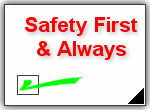 How doctors view methadone is becoming a hot topic. A friend recently informed me that the TV celebrity doctor, commonly known as Dr. Drew, was against methadone and had publicly made negative comments about the medication. I was disappointed to learn of this because Dr. Drew has a fairly large national audience who follow his opinion on medical matters. I then noticed that Dr. Jana Burson (a well-educated and experienced opioid addiction professional) had written on this topic, and herself questioned why Dr. Drew had made derogatory comments in regard to methadone. Dr. Burson knows firsthand how incredibly beneficial methadone is to those suffering with chronic opioid dependency. If a physician deserves a national audience & voice on this topic, it is Dr. Jana Burson, not Dr. Drew Pinsky.
How doctors view methadone is becoming a hot topic. A friend recently informed me that the TV celebrity doctor, commonly known as Dr. Drew, was against methadone and had publicly made negative comments about the medication. I was disappointed to learn of this because Dr. Drew has a fairly large national audience who follow his opinion on medical matters. I then noticed that Dr. Jana Burson (a well-educated and experienced opioid addiction professional) had written on this topic, and herself questioned why Dr. Drew had made derogatory comments in regard to methadone. Dr. Burson knows firsthand how incredibly beneficial methadone is to those suffering with chronic opioid dependency. If a physician deserves a national audience & voice on this topic, it is Dr. Jana Burson, not Dr. Drew Pinsky.
Physicians typically seem to fall into one of two camps: either those who are educated on addiction and modern addiction treatment approaches, or those who are not. This may seem like a simplistic analysis, but is surprisingly accurate. Sadly, in my experience, physician critics of opioid replacement therapies often jump to conclusions that stem from personal bias or opinion based on very limited exposure to methadone and its benefit to the recovering community. Methadone is not “alternative medicine”, or some unproven sideline drug that one must obtain via the black market in a third world country.
Methadone is the leading medically-approved pharmaceutical treatment intervention for opioid addiction in the United States. There is no medical “speculation” on methadone’s success in the treatment of opioid addiction. It is a proven method of saving lives and restoring quality of life for a large subset of those who are addicted to opioids. These are not hyped opinions, but are medical facts that are beyond dispute. That any “physician” would reject methadone as a legitimate treatment for opioid addiction … is professionally irresponsible, and suggestive of medical incompetence in the area of treating drug addiction.
Methadone has been in widespread use in America for over 40 years. The number of addicted individuals whose lives have been saved and/or improved (through the medically supervised use of methadone) is well documented. SAMHSA (the United States Substance Abuse and Mental Health Services Administration) publish evidenced-based Treatment Intervention Protocols (known as TIPS manuals) that are available to treatment centers all across America. They have several such manuals, published and widely distributed, that are specifically dedicated to treating opioid addiction with methadone and buprenorphine (suboxone). SAMHSA also maintain a U.S. government website listing all of the methadone clinics in the USA and U.S. physicians approved to dispense buprenorphine for the treatment of opioid addiction. Why do they list these? So that suffering people can find help for their addictive disorder.
Perhaps Dr. Drew should interview actual patients in methadone treatment programs. Then interview the staff of professionals (including dedicated, knowledgeable physicians) that work in these facilities. Then interview the families of methadone patients that regained their sons, daughters, mothers, and fathers. Then read the evidenced-based literature & research available (through SAMHSA) on the beneficial use of methadone in treating opioid addiction.
That might require Dr. Drew to walk off of the TV production set, out of the celebrity limelight … and into the everyday real world. It’s a place where people like Dr. Jana Burson work for many years, with thousands of opioid addicted people, using medical interventions that are proven and effective. Dr. Drew would do well to have a sit down conversation with professionals like Dr. Jana Burson. This might allow him to replace negative personal bias … with medical fact. Only then, would he be equipped to speak to the public about methadone and opioid addiction. Until then, he is just part of the TV & celebrity noise … where drama, ratings and sensationalism … are cherished over the truth.

 Follow
Follow

 A methadone clinic where I work has received a surge in calls from prospective clients who are interested in methadone to deal with their opioid addiction. We typically perform a telephone triage when someone calls, which is a sort of mini assessment to determine what services a client may be eligible for. After completing this brief telephone interview, we then offer recommendations which may include potential admission to our clinic for methadone treatment.
A methadone clinic where I work has received a surge in calls from prospective clients who are interested in methadone to deal with their opioid addiction. We typically perform a telephone triage when someone calls, which is a sort of mini assessment to determine what services a client may be eligible for. After completing this brief telephone interview, we then offer recommendations which may include potential admission to our clinic for methadone treatment. Methadone is so very beneficial when used properly and judiciously (as prescribed). However, in the wrong hands, methadone can lead to tragic consequences. Here is a cautionary tale.
Methadone is so very beneficial when used properly and judiciously (as prescribed). However, in the wrong hands, methadone can lead to tragic consequences. Here is a cautionary tale. Since launching Methadone.US earlier in the year, I have received daily questions & requests from site visitors in regard to methadone services and methadone treatment referrals. Some inquiries pertain to the benefits of Suboxone (buprenorphine) although the majority pertain to methadone medication specifically.
Since launching Methadone.US earlier in the year, I have received daily questions & requests from site visitors in regard to methadone services and methadone treatment referrals. Some inquiries pertain to the benefits of Suboxone (buprenorphine) although the majority pertain to methadone medication specifically.


